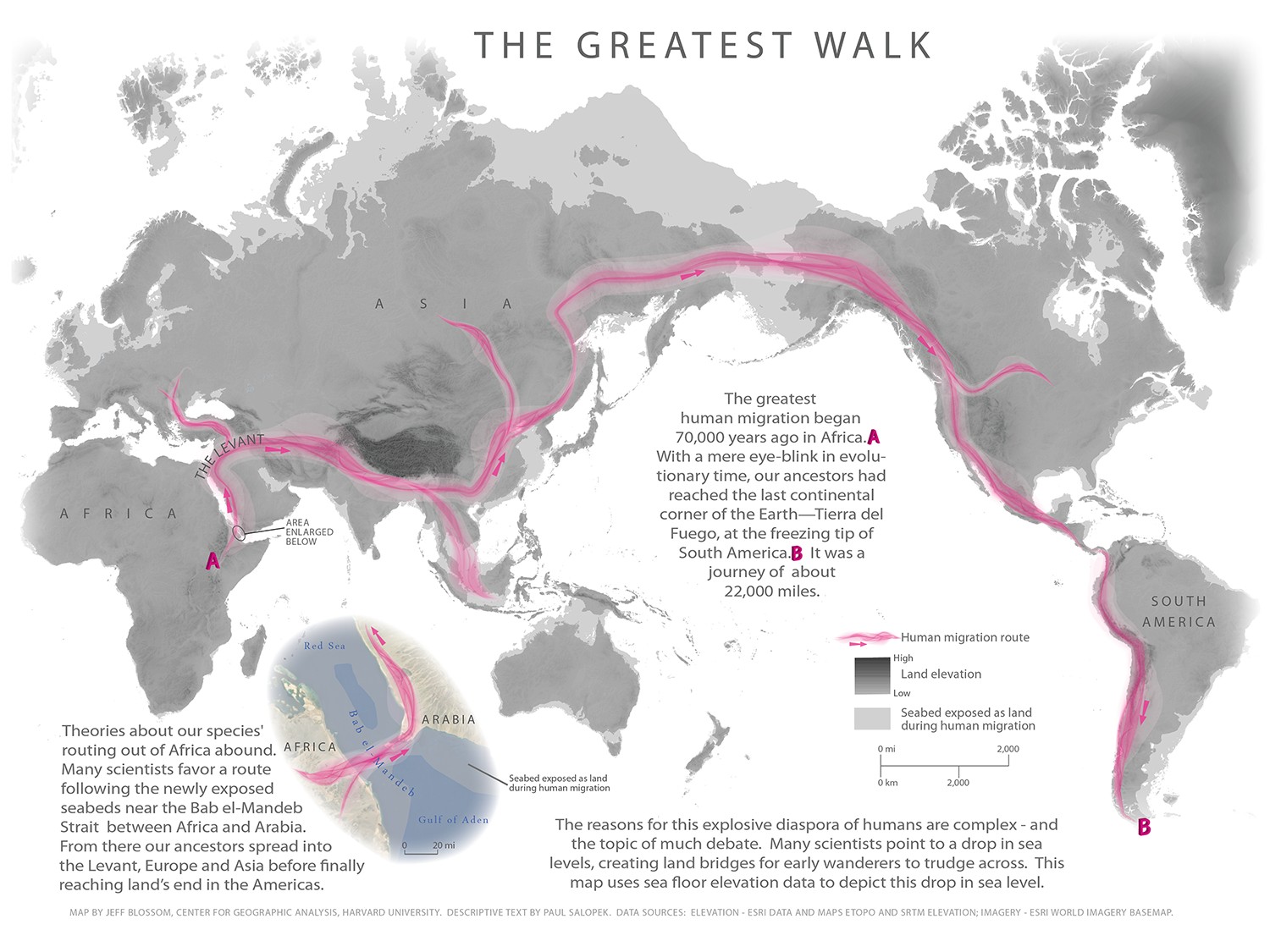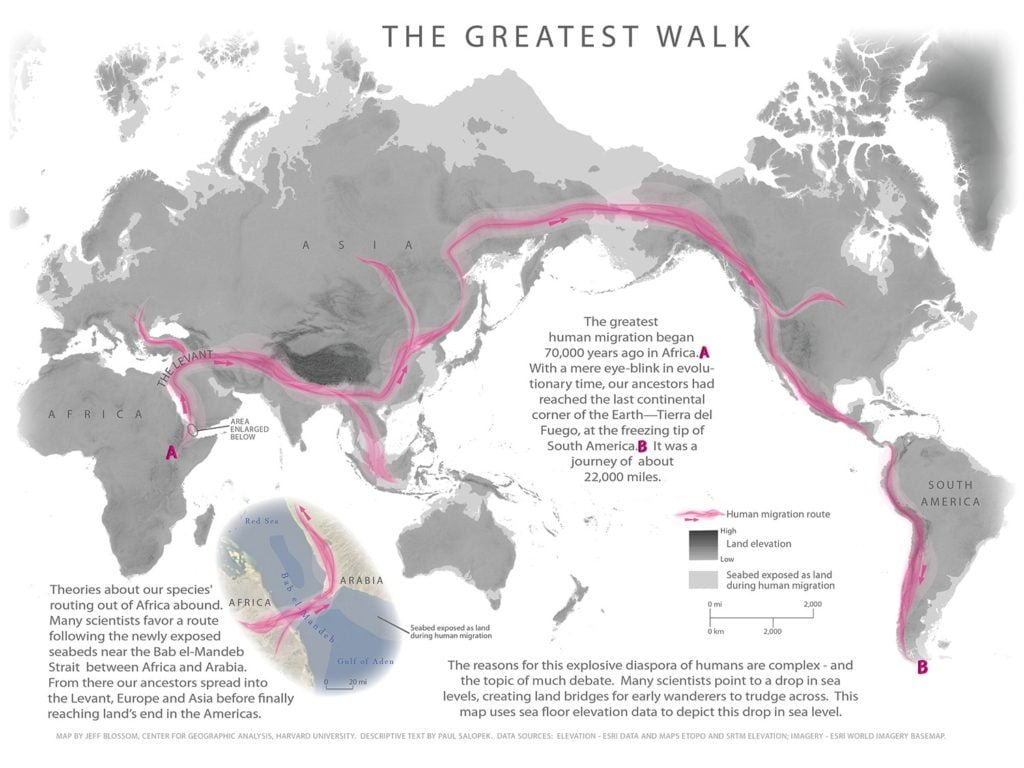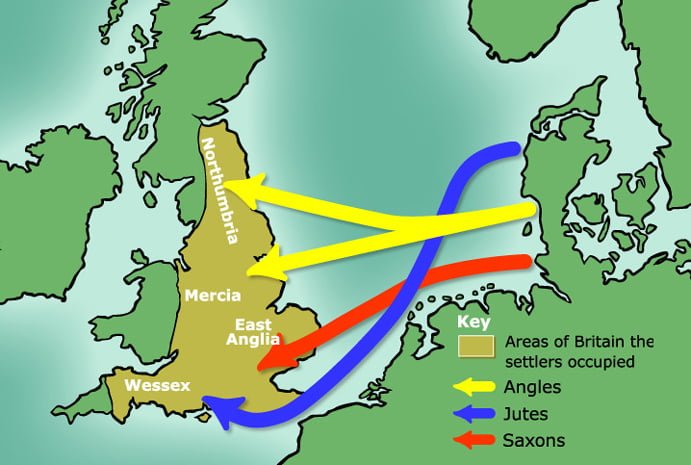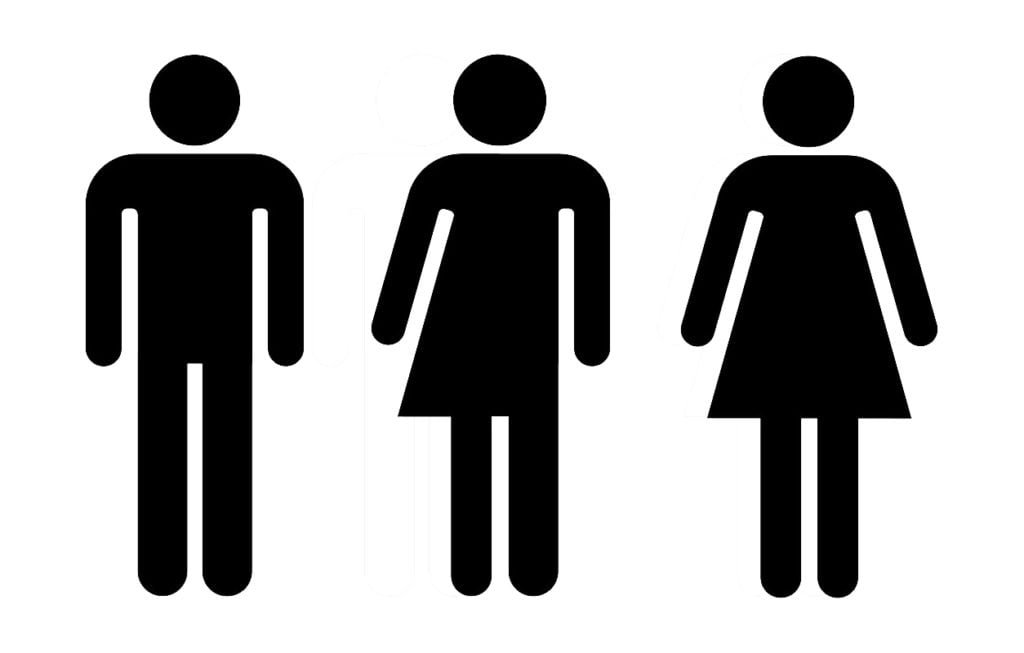The question of why can’t the world speak a single language is echoed more often, either by people interested in languages or by people whose interest in languages does not go beyond using them to communicate. That’s why we have to seriously
To answer this question, we need to consider why we have multiple languages in the first place. Let’s start with the (presumed) original picture.
The original picture
It is presumed that at some point, about 100,000-200,000 years ago, Homo Sapien ancestors started using language in the way we mean language now, with all its complex grammar and vocabulary. At the time, they were spread out over a relatively confined space on the globe and it is practically impossible that language spontaneously arose in more than a handful of places.

So, at one point, there was some limited number of languages among groups of people that had some amount of geographic proximity. It could have been relatively easy for one language to emerge then, or that everyone all spoke the same mother tongue anyway and for things to have stayed that way till now.
But that didn’t happen. In fact, the opposite happened. As humans spread across the globe and population growth exploded exponentially, so too did the number of languages. In fact, it’s estimated that there were approximately 10,000 languages spoken only a couple of hundred years ago.
The reasons
Now consider the reasons for this. There are two main reasons for this. The first is that languages change. The second is that language is identity.
It’s easy to see that languages change. Remember struggling through Shakespeare? Yeah, me too, and that demonstrates the change that English has undergone over the past few hundred years. When that continues to happen and the same language changes in different ways in different geographical regions, you eventually get new languages. The most obvious example is Vulgar Latin dialects, derogatorily called vernaculars back in the day, turning into the Romance Languages: French, Italian, Spanish and Portuguese. This is why some say that Latin never died, it just changed into new forms. See [here] for more details.
So, the first part of the answer is that the general tendency is for languages to propagate and diverge. There is, however, another way to look at things. You may say that we are in a new world order now, with globalization homogenizing the entire world into one common culture, facilitated by internet technology. This may lead some to believe that it’s easier and more practical than ever for English to be a universal language, spoken in the entire world, which leads us to the question of whether will everyone in the world eventually speak English?
This is where part two of the answer comes in. Language is not simply a means for communicating. Language is also identity. We know that people communicate more than ideas with their language, they communicate who they are, what they believe and where they’re from. So the obstacles to one language are similar to the obstacle to us all wearing the same clothes. It would certainly be cheaper and more efficient, but it’s not how people behave. And we see that empirically in studies of how Americans’ accents have not homogenized with the advent of TV.
The same applies with languages — in the face of globalization, we see renewed interest in native languages, for example, the rise of Gaelic (Irish language) in the face of the EU.
Having said that, colonialism and statism have led to a decline in a number of languages from its peak of 10,000 to about 6,000+ today, which you can read about here:Is English killing other languages? Therein, you’ll also see discussion of this question.
The conclusion there, and what I’d similarly suggest here is that “so long as countries exist, English won’t encroach further.” In other words, the world doesn’t really want a universal language.
As long as humans aspire to have their own distinct identities and form different groups, the same aspirations that drive them to wave different flags, root for different teams, listen to different music and have different cultures, they’ll continue to have different languages.







